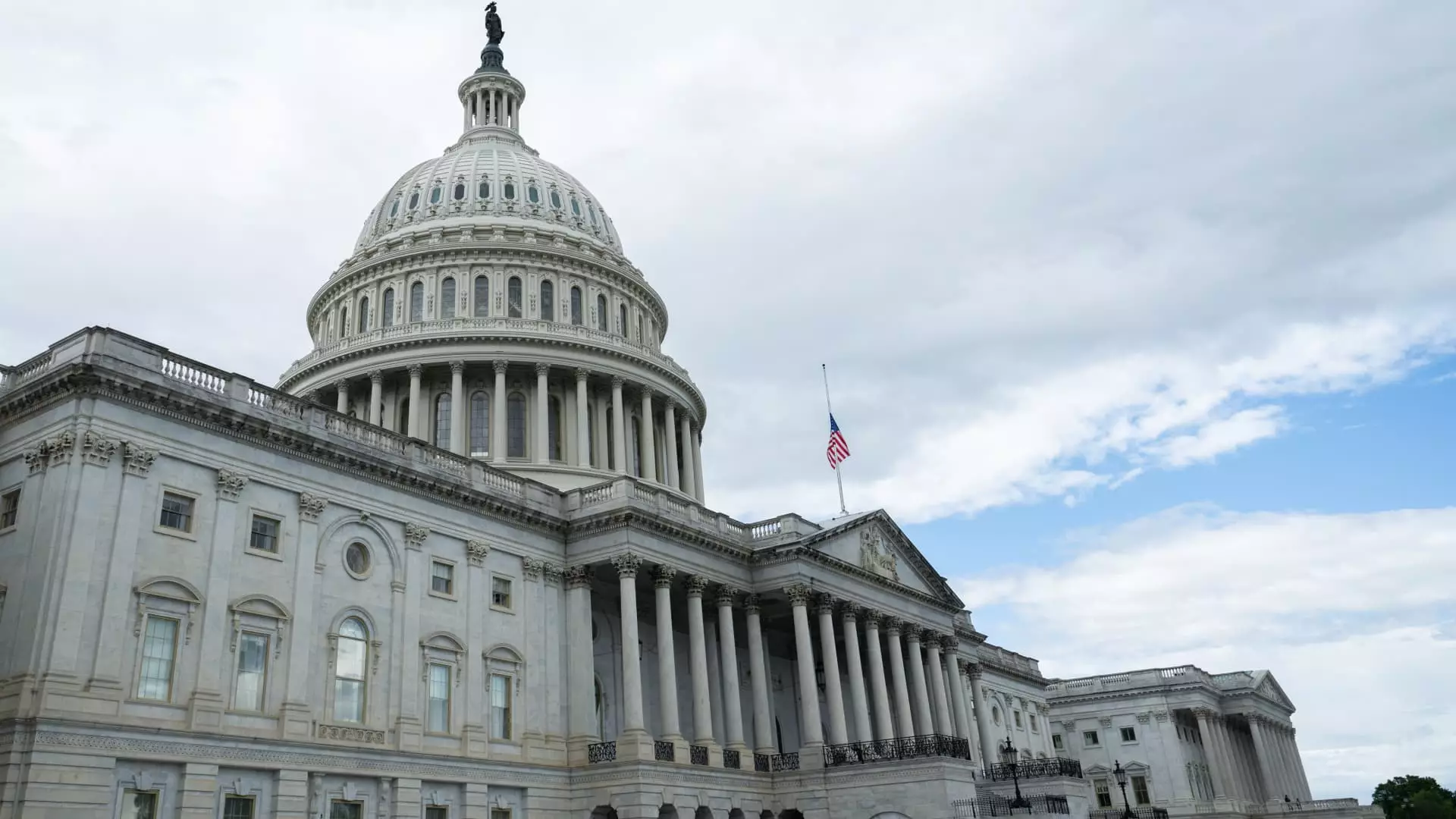In May, House Republicans unleashed a tax cut bill that, while dressed up as a boon for middle-class families, is nothing short of fiscal lunacy. Estimations suggest that this reckless maneuver could inflate the national debt by an astounding $3.1 to $3.8 trillion over the next decade. As the Senate gears up to review this package, the implications are profoundly disturbing. We are at a critical juncture where responsible governance and economic prudence should take precedence, yet what we witness instead is a cavalier attitude toward our nation’s financial health.
The Committee for a Responsible Federal Budget and the Penn Wharton Budget Model have both sounded the alarm, presenting harsh realities that few politicians seem willing to confront. Would we allow a ticking debt bomb, as aptly termed by Rep. Thomas Massie, to explode in our faces simply for the sake of short-term political gain? This isn’t just a fiscal issue; it’s a moral one. We should be asking ourselves if perpetuating a cycle of debt is truly in the spirit of what good governance should entail.
The Façade of Tax Relief
While the proposed bill may shine brightly with claims of tax cuts totaling $4 trillion, a closer examination reveals that the lion’s share of these cuts will primarily benefit the wealthy. This raises a significant question: Why should we continue to enrich those already at the top while systematically strangling social safety nets that provide crucial support to lower-income families? The tax relief offered in this bill comes at the expense of essential services like Medicaid and food assistance for the most vulnerable among us.
To pour salt on this wound, advocates in favor of the bill naively suggest that tariffs implemented during the Trump administration will balance out the financial fallout from these tax cuts. Such reliance on illusory revenue streams reflects an alarming lack of realism. The volatility of tariffs can easily be undermined by a change in leadership or legal battles, leaving hard-working families to shoulder the financial burden imposed by ineffectual fiscal policies.
The True Cost of Rising Debt
The ramifications of skyrocketing national debt may not be immediately palpable to average consumers, but the inflationary consequences will be felt throughout society. As pointed out by economists, the impact on household finances cannot be overstated. An increase in the cost of borrowing—home loans, auto loans, you name it—will inevitably follow, raising interest rates across the board. For families striving to achieve homeownership, a rise in mortgage rates from around 7% to 7.6% could spell disaster, pushing the dream of owning a home further out of reach.
Tim Quinlan from Wells Fargo Economics highlights an overarching truth: consumers often fail to make the vital connection between national debt and personal financial health. However, the mathematics are indisputable: higher national debt correlates directly to higher interest rates, further chaining individuals to a vicious cycle of debt.
A Clash of Ideologies
It would be naive to conflate idealism with effective governance, but this tax bill clearly demonstrates a radical divergence from what should be the tenets of responsible leadership. It dives headfirst into slogans and promises that appeal to a base at the expense of long-term financial stability. Additionally, Republican Senators like Rand Paul have publicly questioned the viability of the bill, indicating that even within its party there lies trepidation about its real-world impacts.
Moody’s recent downgrade of the U.S. sovereign credit rating serves as a stark reminder that risk perceptions among investors are on the rise. As Philip Chao aptly notes, greater debt increases the risk premium on U.S. Treasury bonds, ultimately leading to less favorable terms for consumers. This is aptly described as “pouring gasoline on the fire” of our existing fiscal challenges.
Not only does this approach jeopardize the financial viability of our nation, but it also unfairly burdens future generations. The corroding trust in U.S. financial markets that has emerged from this reckless approach will erode the very foundation upon which our economy is built.
What Lies Ahead?
The winds of change are afoot but driven by political expediency rather than a commitment to sound governance. The disintegration of financial prudence threatens to unravel both our economy and the very fabric of social responsibility. As this tax cut proposal moves closer to implementation, America stands at a critical crossroads. It is imperative for citizens to demand accountability, transparency, and rational policy-making from their elected representatives. Only then can we hope to avert an impending crisis that bears the grim potential of burdening generations to come. If we do not rise to this occasion, we may find ourselves ensnared by our own fiscal irresponsibility, forever altering the landscape of American financial stability.

